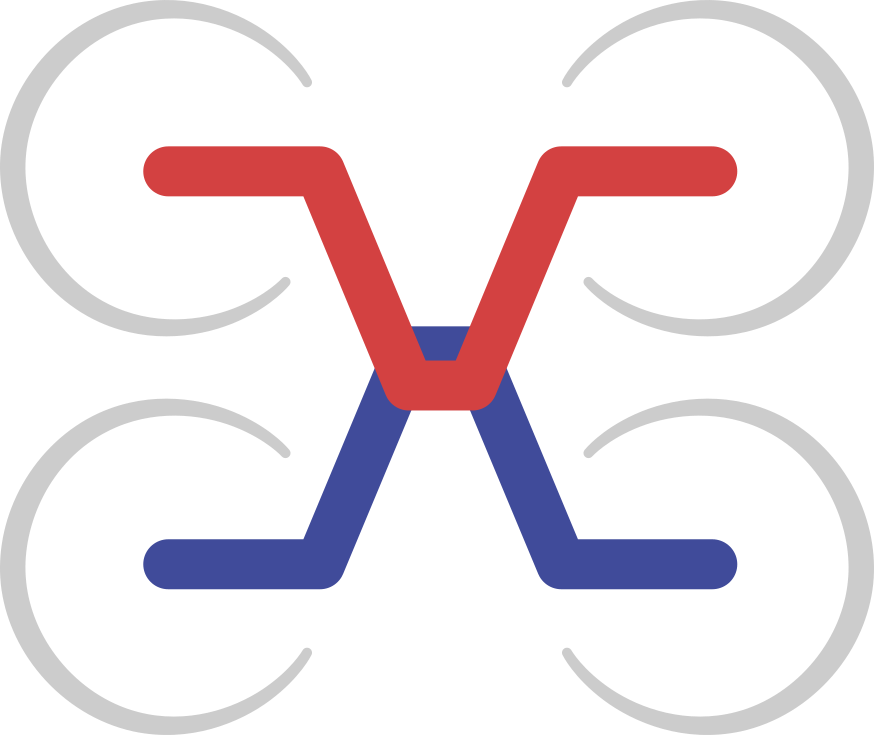Parsing DSDL definitions
Create a file named namespace_a/Foo.uavcan with the following content:
uavcan.Timestamp timestamp
uint8 MY_FAVORITE_CHAR = '\x42'
Create another file named namespace_b/Bar.uavcan with the following content:
float16 x
float16[<8] y
---
uint6 JUST_ENOUGH = 42
float64 answer
namespace_a.Foo foo
Place the standard DSDL definitions into the directory dsdl/
(just clone or symlink the DSDL repository into the current directory).
The resulting directory structure should look like this:
namespace_a/
Foo.uavcan
namespace_b/
Bar.uavcan
dsdl/
uavcan/
...
...
Put this code into a file in the current directory:
#
# PyDroneCAN DSDL parser demo.
# Read the package docstrings for details.
#
# pydronecan supports Python 2.7 and Python 3.x
from __future__ import print_function
from dronecan import dsdl
# Root namespace directories:
NAMESPACE_DIRS = ['namespace_a/', 'namespace_b/']
# Where to look for the referenced types (standard UAVCAN types):
SEARCH_DIRS = ['dsdl/uavcan']
# Run the DSDL parser:
types = dsdl.parse_namespaces(NAMESPACE_DIRS, SEARCH_DIRS)
# Print what we got
ATTRIBUTE_INDENT = ' ' * 3
def print_attributes(fields, constants):
for a in fields:
print(ATTRIBUTE_INDENT, a.type.full_name, a.name, end=' # ')
# Add a bit of relevant information for this type:
if a.type.category == a.type.CATEGORY_COMPOUND:
print('DSDL signature: 0x%08X' % a.type.get_dsdl_signature())
if a.type.category == a.type.CATEGORY_ARRAY:
print('Max array size: %d' % a.type.max_size)
if a.type.category == a.type.CATEGORY_PRIMITIVE:
print('Bit length: %d' % a.type.bitlen)
for a in constants:
print(ATTRIBUTE_INDENT, a.type.full_name, a.name, '=', a.value, '#', a.init_expression)
for t in types:
print(t.full_name)
if t.kind == t.KIND_MESSAGE:
print_attributes(t.fields, t.constants)
elif t.kind == t.KIND_SERVICE:
print_attributes(t.request_fields, t.request_constants)
print(ATTRIBUTE_INDENT, '---')
print_attributes(t.response_fields, t.response_constants)
Make sure the PyDroneCAN package is installed, then run the script. The output should look like this:
namespace_a.Foo
uavcan.Timestamp timestamp # DSDL signature: 0xF776DD8697A8DB73
saturated uint8 MY_FAVORITE_CHAR = 66 # '\x42'
namespace_b.Bar
saturated float16 x # Bit length: 16
saturated float16[<=7] y # Max array size: 7
---
saturated float64 answer # Bit length: 64
namespace_a.Foo foo # DSDL signature: 0xFE327FCBE8C6F7D
saturated uint6 JUST_ENOUGH = 42 # 42
For a real world usage example it’s recommended to refer to Libuavcan, which implements a DSDL compiler based on the DSDL parsing module from PyDroneCAN.
